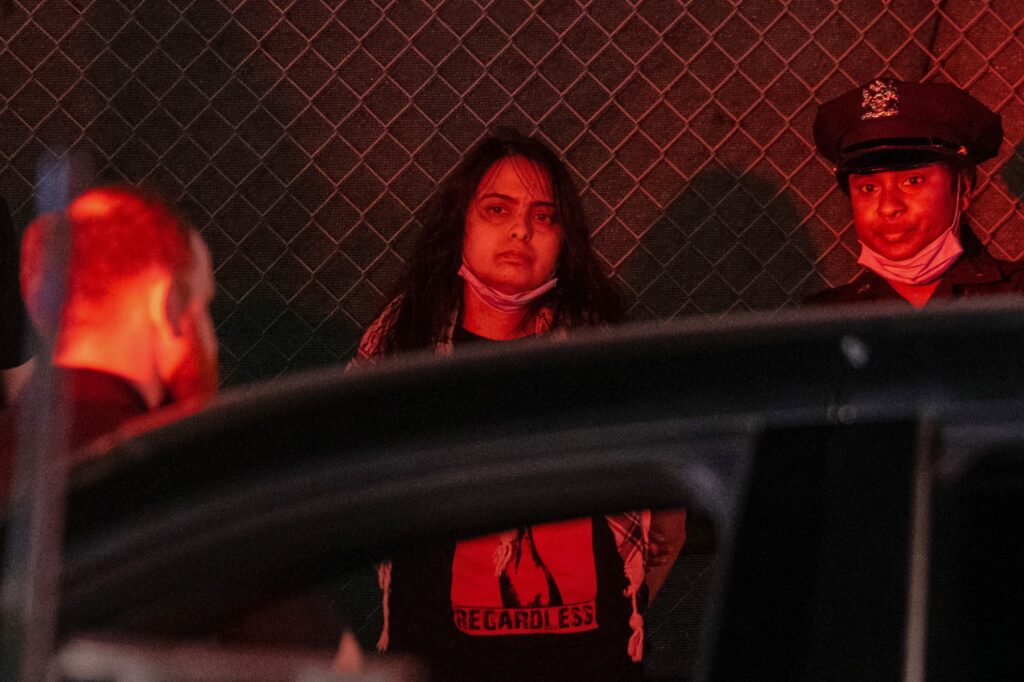Urooj Rahman threw a Molotov cocktail at a police car during the Black Lives Matter protests in New York City, ignited by George Floyd’s tragic death. Consequently, she faced justice, receiving a 15-month prison sentence. However, after serving only a year, Rahman reemerged, now aligning herself with Within Our Lifetime (WOL), a Palestinian-led activist group. Since 2015, this organization has orchestrated pro-Palestinian protests across U.S. college campuses. Yet, her shift from courtroom advocate to campus agitator raises eyebrows, especially as concerns swirl about WOL’s alleged role in infringing on the civil rights of Christian and Jewish students. Indeed, this transition marks a striking evolution in Rahman’s activism journey. For more details on her initial crime, see this report. To understand WOL’s origins, check their official site. https://wolpalestine.com


Urooj Rahman’s Activism Pivot
After her release around February 2024, Rahman didn’t retreat quietly. Instead, she joined forces with Within Our Lifetime, a group known for its bold campus demonstrations. These protests, often vibrant and loud, aim to spotlight Palestinian rights. However, critics argue they’ve crossed lines, fostering environments hostile to Jewish and Christian students. For instance, chants and actions at these rallies have sparked debates about antisemitism on campuses, a tension that’s only grown since Rahman’s involvement. Although her legal background might suggest a measured approach, her past suggests otherwise—she’s no stranger to radical acts. This pivot from firebombs to organizing campus unrest underscores her unrelenting drive. Learn more about campus antisemitism trends at ADL’s resource page. https://www.adl.org
A Call for Reflection
Ultimately, Urooj Rahman’s journey from a Molotov-throwing lawyer to a campus protest leader with Within Our Lifetime demands scrutiny. While her passion for justice burns bright, the consequences of her actions ripple widely. First, her past suggests a readiness to push boundaries. Now, her role amplifies a movement accused of stoking division. Therefore, we must weigh the balance between advocacy and its fallout. Rahman’s story isn’t just about one woman—it’s a mirror to our society’s struggles with protest, rights, and coexistence. So, as tensions simmer, what’s the line between fighting for a cause and fracturing a community?






